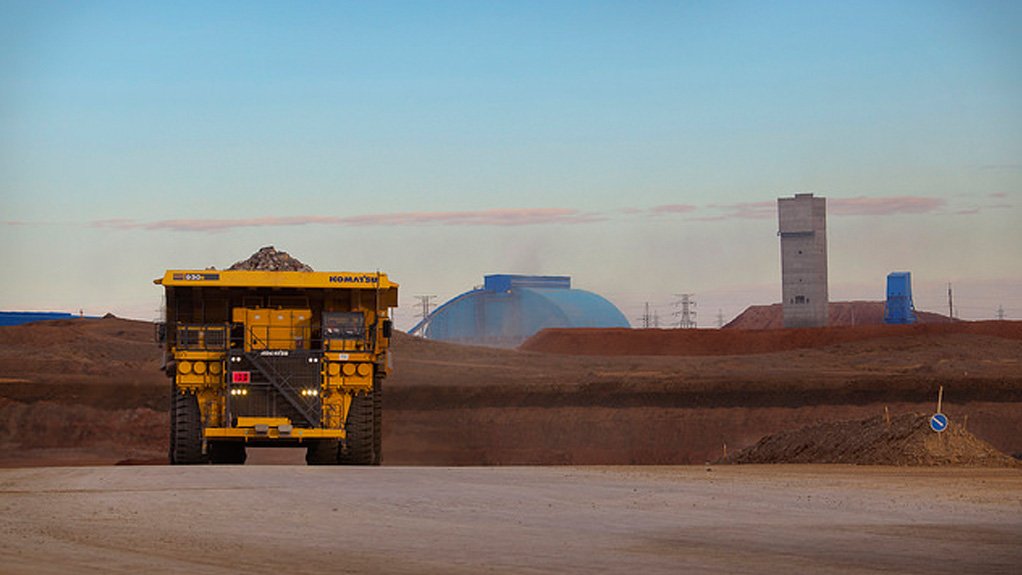
The $5.3-billion underground project at the Oyu Tolgoi copper/gold mine, in Mongolia, remains on schedule to be completed by 2022, but operator Rio Tinto has flagged a nine-month delay in achieving sustainable production.
Rio Tinto-owned Turquoise Hill, which holds the giant mine in a 66:34 partnership with the Mongolia government, reported on Tuesday that sustainable production would be achieved in the third quarter of 2021, rather than the previously guided start of 2021.
The nine-month schedule slip is the result of challenging ground conditions and delays in the completion of Shaft 2, production capability of which is a key enabler of increased underground development and further construction of critical underground infrastructure.
Until the completion of Shaft 2, Oyu Tolgoi would experience similar, but not increased, development rates as seen in the third quarter, Turquoise Hill stated.
The miner, which is listed on the NYSE and TSX, reported that it had started its own review of the cost and schedule forecast and the impact that it would have on the company, including the impact on cash flows and liquidity.
Meanwhile, Turquoise Hill CEO Ulf Quellmann reported that Oyu Tolgoi would likely meet the upper-end of its 2018 production guidance of 140 000 t to 155 000 t of copper in concentrate and 240 000 oz to 280 000 oz of gold.
In the third quarter, Oyu Tolgoi produced 49 400 t of copper in concentrate, 77 000 oz of gold in concentrate and 230 000 oz of silver in concentrate.
Copper production was flat compared with the second quarter, as higher grades and recoveries were partially offset by lower throughput. Gold production increased by 54% quarter-on-quarter, owing to higher grades and recoveries.
Third quarter sales volumes were impacted by torrential rain in July and August, which consequently affected Chinese road and rail availability. Third quarter sales volumes were generally lower than the previous quarter, which benefited from the sales of deferred volumes related to the first quarter of 2018’s force majeure.